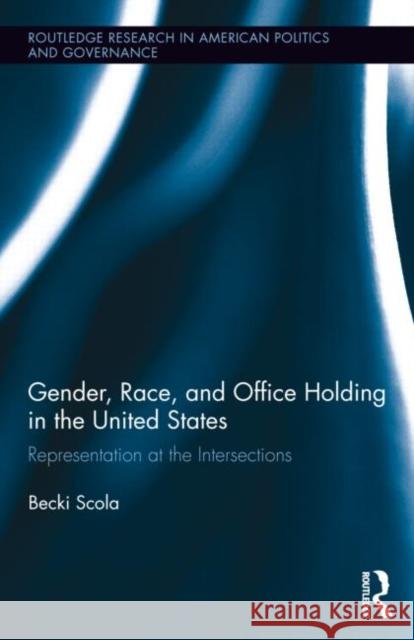Gender, Race, and Office Holding in the United States: Representation at the Intersections » książka
Gender, Race, and Office Holding in the United States: Representation at the Intersections
ISBN-13: 9780415854344 / Angielski / Twarda / 2013 / 184 str.
Gender, Race, and Office Holding in the United States: Representation at the Intersections
ISBN-13: 9780415854344 / Angielski / Twarda / 2013 / 184 str.
(netto: 737,20 VAT: 5%)
Najniższa cena z 30 dni: 730,42
ok. 22 dni roboczych
Bez gwarancji dostawy przed świętami
Darmowa dostawa!
Over the past several decades, the number of women elected to higher office in the United States has grown substantially. However, when the electoral gains of women are considered on a state-by-state basis, there are observable variations in the rate by state at which women are elected to state legislative office. Scholars have noted an additional variation in women office holders: that women of color serve at higher rates than white women.
Becki Scola s book provides an explanation for these two interrelated puzzles on electoral gender gaps. She examines the factors surrounding the uneven proportional distribution of female legislators, and then explores why gender appears to be an advantage for women of color office holders. Building on a model of institutional influence, her analysis proposes that some institutional structures at the state level "demand" that women to run for office while others do not. She suggests that in states where institutional structures signal their openness to female candidates, there are more likely to be higher percentages of female legislatures. Scola also finds that across time, the variables that are important for predicting women s office holding across the states are different for white women and women of color. White women are significantly more likely to be present in legislatures of states that have higher levels of liberal ideology, that are designated as Moralistic, and that have less professionalized legislatures. States with lower per capita income, lower female disadvantage, and higher percentages of non-white populations are associated with higher percentages of women of color legislators.
The first book-length study to analyze how race informs gender in terms of patterns of office holding, "Gender, Race, and Office Holding in the United States" provides insight into both underrepresentation in general as well as the underlying dynamics of representation within specific groups of women.











